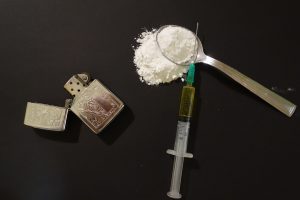The Benefits of Extended Alcohol Rehab
No one starts off drinking intending to become addicted to alcohol. Casual misuse progresses to chronic abuse and addiction. Once a person has become addicted to alcohol, quitting drinking becomes a matter of life and death. Not only does prolonged alcoholism negatively affect physical health, alcohol addiction also has a profound effect of psychological health, finances, relationships, career aspirations — and most of all, family members.
Unfortunately, quitting drinking isn’t as easy as it sounds. Alcohol abuse causes chemical changes in the brain that affect judgment, learning, reward, memory and other executive functions. Alcohol also causes physical dependency, which means that the body becomes so reliant on alcohol that it cannot function without it. Withdrawal symptoms are serious and life threatening; in the most serious cases, securing professional alcohol recovery for 90 days or even longer is of paramount importance.
Relapse

Most people who struggle with alcoholism relapse into addiction after a period of sobriety. In fact, the National Institute on Alcohol Abuse and Alcoholism reports that 90 percent of people who abuse alcohol will relapse within 4 years. Considering the diverse array of alcohol treatment programs available, it’s not surprising that results are inconsistent.
Rapid detox programs provide medical assistance over a period of several days but offer no follow up therapeutic care. Outpatient support groups and recovery programs don’t help with the physical recovery, which for the most severe addicts, is serious. While Residential care programs that offer individualized care can produce successful results, a client often leaves inpatient care too quickly — and well before the worst cravings to use begin.
The Benefits of Extended Care
There have been enormous advances in the diagnosis and treatment of addiction in the last 100 years. What was once considered a moral failing is now understood to be a complex brain disease that incorporates genes, behavior, environment, trauma, mental health and biology. Understanding the core reasons people rely on alcohol is the cornerstone of every responsible treatment program. Unfortunately, unearthing these core reasons is neither easy nor fast. After considering that alcoholism worsens emotional, physical and spiritual health, separating the effects of drinking from preexisting triggers and negative thought patterns is a process that requires qualified, compassionate care. In addition, cravings to use again typically peak after several weeks of sobriety — often times after the typical 30 day rehab stay ends. Some who have tried to quit before but relapse repeatedly may benefit from an extended residential alcohol rehab stay of at least 90 days.

During extended care at 12 Keys Rehab, the client begins treatment with a safe and thorough medical detox process. During detox, qualified and certified staff members provide necessary pharmacological assistance that prevents seizures, delirium tremens, prolonged vomiting, insomnia and other serious health problems associated with alcohol withdrawal. At 12 Keys Rehab, we don’t work in medical maintenance therapy of any kind; however, we will provide non-addictive pharmacological treatment for mental health disorders such as depression, PTSD, anxiety and other commonly co-occurring and treatable conditions.
Next, our staff collaborates in the development of a comprehensive, personalized wellness program that addresses the client’s ongoing mental health, physical and spiritual needs. We employ a broad array of treatment disciplines that include many of today’s most exciting therapies as well as the design for living taught by Alcoholics Anonymous. Because we are a small private facility with a large staff, we respond quickly to changes in condition.
